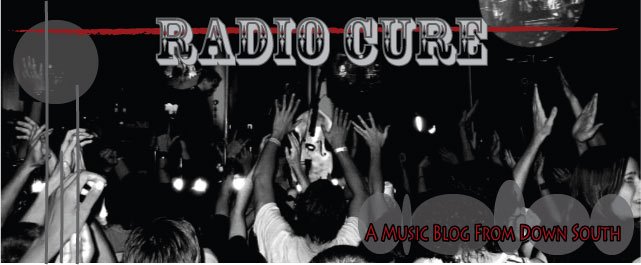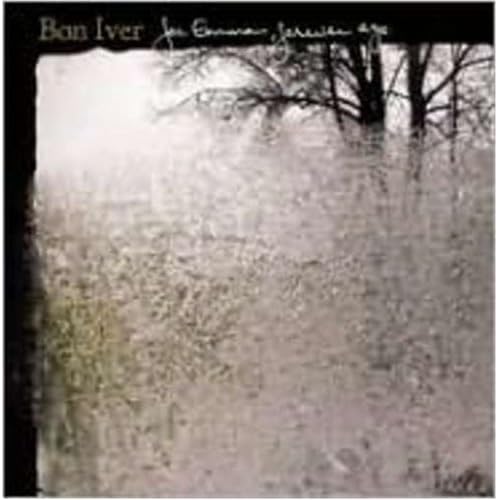From Pitchfork:
When he first wakes up in the morning, the National singer Matt Berninger sounds exactly the way you'd expect, his voice a craggy rumble deep enough to have seismic implications. That voice is a huge part of the reason his band's brooding anthems have become popular enough that they can headline festivals and show up in a Google commercial.
And now we're about to hear another set of those brooding anthems. As previously reported, the National will release an as-yet-untitled new album this May, via 4AD. And this spring, they'll hit the road, bringing the new songs to audiences in North America and Europe. Earlier this week, Berninger checked in with Pitchfork after rolling out of bed to talk about the new album, the intra-band battles surrounding it, and the Sufjan Stevens guest appearance that should make the final cut.
Pitchfork: Is the new album finished?
Matt Berninger: No, it's close. We're scheduled to master it in three weeks. I'd say it's 75 percent done. But with us, the songs often change drastically in the last couple of weeks, in the mixing. We know what songs we're trying to finish, but what exactly the songs are going to end up like is still a mystery. It's the most frustrating and exciting part of the process. So from a time perspective, we are almost done, but what the thing's going to end up like, it's hard to tell.
Pitchfork: What's the most frustrating aspect of this stage?
MB: At this point, everybody's getting attached to certain versions or arrangements or forms of songs, and everyone's getting attached to different versions. At this point, we'll be chopping songs apart, cutting them down, and then rearranging them, just to try to figure out the magic middle ground between everybody's ideas. So it's where everybody starts to just dig their feet in the sand, and it's where all the arguments happen because we know how drastically something can change at the last minute. It's easy for us to ruin a song in the last day or two of working on it.
Pitchfork: Do you think you've ruined songs before?
MB: I think we have, yeah. Well, not ruin, but there are versions of songs that we had that we maybe got cold feet about. We did something to them that we thought would put it over the edge, but it actually kind of ruined the original vibe. It ends up being a pretty good song, but the song "Guest Room", on our last record, had a sort of a different personality until the last week or so. It sort of became muffled up, and I think it hurt that song a lot.
But the other side of the coin is the song "Fake Empire". It wasn't 'til the very end of the process that we added the whole fanfare, the horns at the end, which turned a sleepy little simple song into something more exciting. That whole moment at the end of "Fake Empire" makes that song in many ways. It's an average song without that. We're right in the place where those kinds of things happen.
Pitchfork: Your songs are always pretty layered and complicated. I would imagine that figuring out the last little details when you're putting these things together would be a really tough process.
MB: Of the reasons that it's hard to figure out what the song's going to be like until the last minute is that, in the process of going from just a little sketch of an idea-- you know, a melody, and maybe a simple piano or guitar part-- we'll just start layering lots of different things on it with the idea that maybe we'll use 20 percent of this, but let's try everything. We'll also have three or four different drum parts that completely change the whole character of the song. So when we start picking the elements that complement each other and work well together, a song could be just this huge epic, or it could be a folky little scrappy ballad. It's not quite that extreme, but if you add strings or something, a song becomes a totally different song.
That's where the fighting happens between us. There's the one camp that's always like, "This song's better simple," and then there's another camp that's like, "It's boring simple." That switches around from song to song, and it gets heated, but it's how it's always been. Since our second record, we started to know this is the phase we always go through, and we usually will come out the other side still friends, and with a pretty good record.
When we were making Boxer, it got so tense between all of us that we worried whether we could even continue being friends and being a band toward the end. It was just so stressful on everybody. This time around, it's still as tense, but we're not worried. We realize that this is just what happens to us when we're near the end of making a record. A week after the record's done, we all laugh about the mean and horrible things we've said to each other. It's like a family at Christmas: Sometimes you say the worst things possible to each other, but you know you'll come back next Christmas.
Pitchfork: Do the band's sets of brothers [Aaron and Bryce Dessner, Scott and Bryan Devendorf] team up with each other?
MB: Yeah, sometimes [laughs]. The fact that we have two sets of brothers, it balances out. I'm sort of in between. It's hard to tell who's going to go one way with a song. It's never the same fights. You can never expect who's going to want something one way or the other way. Those guys will talk to each other a lot on the car rides home and resolve problems. [Laughs] I make this sound like all we do is fight, but that's not quite true. It's a very balanced warfare up here. Nobody's a favorite at any moment.
Pitchfork: Does the new album have a title yet?
MB: No, it doesn't. We've been kicking around ideas. Every time we have an idea for a title, it lasts a few days and then we realize how bad it is. Not long ago, we were calling it Summer Lovin' Torture Party. Thankfully, we realized that's just a stupid title. So right now, it's still untitled.
Pitchfork: Can you name any of the songs that will be on it?
MB: It's hard to tell because we're still going to chop some. One of the contenders is "Love Buzz, Ohio". There's one called "Romantic Comedy", there's one called "L.A. Cathedral", there's one called "Quiet Company", and there's one called "Runaway". There's a bunch that are untitled. There's a few that we've played live before. Most of those will make it, but I think we're still going to chop a couple of songs, and we don't really know which ones we're going to chop yet.
For a long time, we thought "Love Buzz, Ohio" was going to be a big, important song on this record, but just last week we were all thinking maybe it doesn't even belong on the record. It's so weird how quick we shift around the idea of what kind of record this is going to be. That song has had the potential to be good, but we just haven't found it yet. We haven't quite found its heart yet. But now we've jumped in and out of it and have done a few things, maybe stripped it way back.
Pitchfork: I was just watching a YouTube video of you doing that song last summer, and it sounded huge and epic.
MB: Yeah [laughs]. Well, that's the problem. If it becomes too epic, it sounds ridiculous. For a while, we've sort of pushed it too far, to where it sounds just like a bloated attempt, like we're trying to make an epic, and that can just sound bad. That happens with almost every song we work on; we push them too far. We make them too pumped up and overcooked, and you can hear that, I think. For us, the last phase of the process is always realizing that we ruined most of our songs, so let's go back, try to pull stuff out, and find its core. Maybe it should just be three instruments, not all these bassoons and horns and all this kind of stuff. Other ones, without that stuff, don't work. We went through this phase where everybody was just scratching their heads, and it sort of became an annoying song. I think it's back from the brink, but there's no telling.
Pitchfork: Boxer was a much more restrained album than Alligator. You had big choruses, but you weren't yelling them anymore; they didn't build up to these big cathartic endings. How does this one fit on the spectrum between those two records?
MB: I don't think it sounds anything like Alligator, but it's less restrained than Boxer, that's for sure. I don't quite scream my head off in the way I did with "Mr. November", but I do think it's cathartic. Boxer was all tension without a whole lot of release. This builds a lot of those same kinds of tensions, but I think there's at least a little bit of bloodletting in this one. I'm trying to sing out and higher a little more, and the melodies move around a little more. When we started this record, I worked on melodies before I worked on lyrics. A lot of my melodies are sort of in a limited chanting, murmuring range, which has always worked for me. But I was trying to work on melodies this time much harder than I ever have in the past, and I think that alone has made the songs feel like they release more.
I don't know; we're talking about abstract things. There's a lot of yelling on this record, but not quite the guttural, psychotic screams that were on songs like "Abel" and "Mr. November". I also think this record moves faster. I think it's going to be a longer record than Boxer, but hopefully it's going to feel shorter. The songs have much more momentum, somehow. It's less stately, a little more... Catchy is not quite the word, but I think this record will be fun to drive to. Hard to tell, though.
Pitchfork: Sufjan Stevens played on the last album. Do you have any guests on this one?
MB: We have a bunch of people who have come in and out of the studio, which is behind Aaron's house. It was sort of an open door policy; friends come over and do stuff. So a lot of people did do things. I don't know exactly how much of everything we're going to keep. I will say that Sufjan did something that we are going to keep on a song. He sang some weird little backing vocal melodies-- no words. It was on a song that had just the right sort of odd, creepy vibe. There are a few other people that have come in and out. I don't want to say who yet [laughs] because we still might be editing them out. But I'm pretty sure that the little Sufjan vocal thing is going to be in there. It really did something special with that song.
Pitchfork: You're playing, for the most part, much larger venues than you played when Boxer first came out. Does that change the way you write songs, imagining how they're going to be heard in these bigger venues?
MB: That's a good question. I don't think so. I don't know if I would even be able to have perspective on that. Maybe we do without even realizing it. Throughout the Boxer touring cycle, we played a range of venues. And then, by opening for R.E.M., there were some gigs we were playing arenas. But I don't think we actually did anything different. I think even when we were playing the little clubs, we were in many ways pretending we were playing in front of thousands of people. We've always been trying to put on these big, passionate, powerful live shows. So it didn't feel that weird, actually, when we opened for R.E.M. and as our crowds sort of got bigger and bigger.
But then again, a lot of songs did change-- like "Squalor Victoria", for example. Playing it live definitely changed the song into a much bigger, more anthemic song. I don't know if we would've done that if we were just playing Pete's Candy Store-- if the same thing would've happened to that song, or if it's because these rooms were bigger and we were reaching for the rafters more. That song completely evolved into a different kind of song live than it is on the record. That may just be the natural shift that happens to us when we're playing for bigger crowds. I don't know if we've been trying to make a big record with that in mind. I know we didn't want to make another Boxer. From the beginning, there was a conscious idea of making a faster and slightly less sensitive record. I don't know how you would describe Boxer, but, less of a moody... I guess this thing really is still very moody, but we wanted to make a meaner record. And maybe that has something to do with it. We know how it's going to be fun to play these things loud and big for shows. It could very much be in the backs of our heads.
Pitchfork: Is there any music that you were all listening to recently that might have influenced the record?
MB: I don't think there's anything that we were all listening to or talking about collectively. We all listen to very different kinds of things. In fact, I was hardly listening to anything this past year and a half, just because I had my headphones on so often, trying to write lyrics for this record. When I took the headphones off, the last thing I wanted to do was have other music in my head. I had been listening to these sketches for five hours a day, trying to think about them and write to them, so I missed an entire year of music in some ways. I listen to a song or two from people that I loved, just for inspiration here and there, but I don't know if it actually worked. I think it just frustrated me. You know, when you hear something you love so much and you feel like you're getting nowhere with a song, it often just makes it even harder to write to it.
Pitchfork: Are you looking forward to the whole touring cycle kicking up again after the record comes out?
MB: Yes. I don't love being on the road. I don't love living in a bus, even though touring has become so much nicer than it was a few years ago. We don't have to drive, pack into a little van, sleep on floors. But you're still away from home, and you're still just floating around. It does get to me after a couple of weeks. This time, we're trying to do slightly shorter tours. I mean, I am really looking forward to playing these songs live, and I always love the shows, but living in a bus or hotel rooms for weeks and months, I don't take well to that. I go a little crazy.
I also have a one-year-old baby at home. When you miss three weeks of a little one-year-old, you miss a lot. I'm a little freaked out about that, but my wife and the baby will come for some of it. The truth is I've been trying to not even think about touring right now, just trying to finish the record. But we're all excited about playing Royal Albert Hall and Radio City; these are dreams come true.
Pitchfork: You're playing Paris with Pavement.
MB: Yeah, if somebody told me I was playing in Paris with Pavement five years ago, I wouldn't know what I'd think. It boggles my mind that that's going to happen. Scott and I-- we're not alone in this-- but that was probably the band that made us want to be in a band. Or at least they gave us the confidence. Somehow, you realize you can kind of do anything in music. You don't have to be good at a certain thing; you can just do whatever you want.
Pitchfork: The band was just the focus of a commercial for Google. Was that weird for you?
MB: They just contacted us. Our manager said, "Hey, you guys have an offer for a Google ad." And at first, we saw dollar signs. We were like, "Google?" I have a kid and stuff, and we'll sell a song to a movie or a TV show or an ad if the money's good enough. And the Google thing, we were interested because we thought it would just be a ton of money. Turns out it was hardly any money, but then we saw the ad that they were talking about, it's basically just an ad for our band. So it seemed like a smart thing to do.
I'll be honest; I think we all debate that whole thing. Having your songs in movies or TV or commercials, does that hurt your band, or does that hurt the music? We debate that all the time. But the Google thing is an example where it's like, well, it supports us, and it's about us, so we were OK with it. And to be honest, we were excited about it. But yeah, we didn't get rich off it.
Tuesday, February 02, 2010
Subscribe to:
Posts (Atom)










